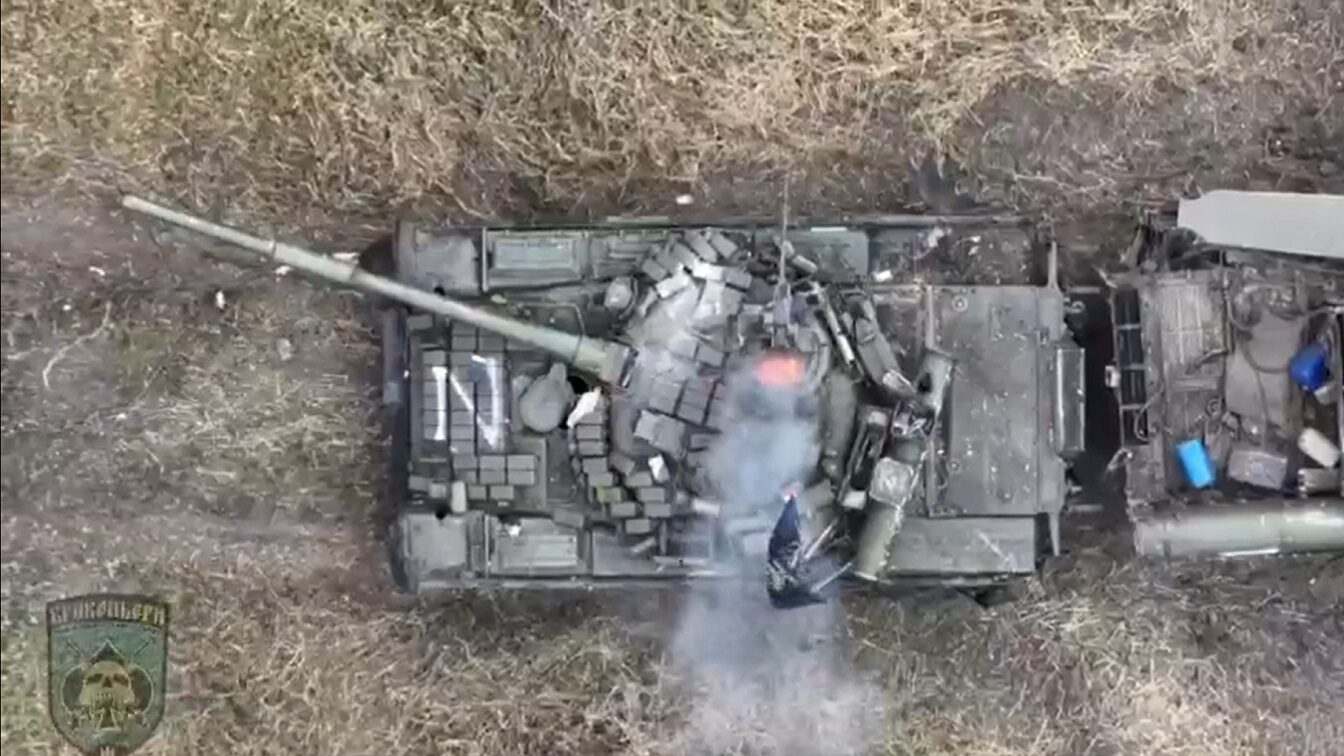Yevgeni Prigozhin, the leader of the Wagner Group mercenary forces that routinely engage in war crimes in Ukraine, the Middle East, and Africa, has just made a remarkable confession that bodes ill for Russia’s chances in its war against Ukraine.
Prigozhin is an important political figure, so his thoughts reflect what a significant portion of the Russian elite thinks. Moreover, he has authority since his fighters have borne the brunt of much of the fighting in the Donbas. So, it’s worth listening when he speaks—even at some length.
Here are some of his statements:
For starters, the war isn’t going well: “Many of those who supported the special [military] operation [the war] yesterday are now in doubt or categorically against what is happening. The representatives of the [Russian] deep state want to urgently return to their normal lives, old habits, and comforts.”
Indeed, it may be time to put an end to the war: “For the authorities and for society as a whole, today it is necessary to place a period on the Special Military Operation. The ideal option is to announce the end of the SMO, to inform everyone that Russia has achieved the results that it planned, and in a sense we have actually achieved them. We have destroyed a huge number of fighters of the Armed Forces of Ukraine and we can report to ourselves that the tasks of the SMO have been completed.”
But there’s a downside: “[I]f earlier Ukraine was a part of the former Russia, now it is an absolutely nationally oriented state. If before February 24, 2022, the European Union was eager to give Ukraine tens of millions of dollars, now tens of billions are being given for the war. “
And then there’s the forthcoming Ukrainian counteroffensive: if “the Armed Forces of Ukraine will go on the offensive … there may be various options for the development of events. One of them is that the Armed Forces of Ukraine will run into the defenses of the Russian Federation, suffer serious losses, after which a colossal counteroffensive of the Russian troops will begin to the borders of the Donetsk People’s Republic, or to the Dnieper, or even to Poland. But, given the current dynamics and problems, such a counteroffensive, to put it mildly, is not very likely. The second option is that the Ukrainian army will launch a counteroffensive and somewhere will be able to break through the defenses.
“In this case, in the army, which for years considered itself one of the best armies in the world, defeatist moods may set in.”
But things could worsen: “This [defeat] can lead to global changes in Russian society. The people are already looking for someone to blame for the fact that we are not the strongest army in the world, and in this situation they will look for … those people who today, without putting any effort into the military operation, are as far away from the theater of operations as possible, trying not to lose their capital, to live a familiar life, and this is absolutely unacceptable for a people weary of war and losing the taste of victory.”
But, says Prigozhin, there is hope: “[I]f Russia reaches the bottom and pushes away from it, throwing off the burden of the ‘deep state,’ then it will float up like a huge sea monster, demolishing everything in its path, including the plans of the United States [to destroy Russia].
“And there are many examples of this in world history. China in the middle of the 20th century, … Germany after the First World War, Japan after the Second World War, Turkey after the collapse of the Ottoman Empire. They all surfaced, pushing off the bottom.
“Radical national feelings will rise as after any military defeat, the Russian military industry will begin to work with tenfold effort. Economic efficiency will crowd out sluggish, inefficient public capital. The state will get rid of bureaucracy, processes will become transparent, and Russia will step by step turn into a Bristling Military Monster, which the international community will have to more than reckon with, to bend down so that with every bend we see their parted buttocks.”
The final image is typical for the Russian elite as well as for its Führer, Vladimir Putin. But more worrisome is Prigozhin’s reference to Germany after World War I. That’s an implicit endorsement of Nazi Germany, whose rise the Wagner chief evidently considers something Russia may want to emulate.
The vulgarity aside, Prigozhin’s analysis is right on the mark. Ukraine is winning. Russia is losing. Ukraine’s counteroffensive is likely to succeed. The Russian regime is likely to collapse. And Russia’s eventual transformation into the 21st century’s Nazi Germany is quite possible.
MORE: Lauren Boebert Won’t Last Much Longer
MORE: Kamala Harris Is Now Facing The Unthinkable
MORE: Joe Biden Just Made Another Embarrassing Mistake
MORE: Joe Biden And Kamala Harris Won’t Run In 2024: Expert
MORE: ‘You Really Oughta Go Home’: F-22 Raptor Stealth Fighter Flew Under F-4 From Iran
Author Biography and Expertise:
A 19FortyFive Contributing Editor, Dr. Alexander Motyl is a professor of political science at Rutgers-Newark. A specialist on Ukraine, Russia, and the USSR, and on nationalism, revolutions, empires, and theory, he is the author of 10 books of nonfiction, including Pidsumky imperii (2009); Puti imperii (2004); Imperial Ends: The Decay, Collapse, and Revival of Empires (2001); Revolutions, Nations, Empires: Conceptual Limits and Theoretical Possibilities (1999); Dilemmas of Independence: Ukraine after Totalitarianism (1993); and The Turn to the Right: The Ideological Origins and Development of Ukrainian Nationalism, 1919–1929 (1980); the editor of 15 volumes, including The Encyclopedia of Nationalism (2000) and The Holodomor Reader (2012); and a contributor of dozens of articles to academic and policy journals, newspaper op-ed pages, and magazines. He also has a weekly blog, “Ukraine’s Orange Blues.”

